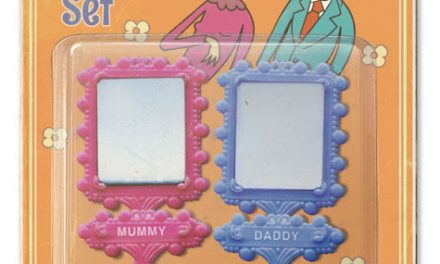se see the following CFP for an edited collected on television series created by Golden Girls creator Susan Harris.
Edited by Rosanne Welch
This edited volume on the works of Susan Harris will be part of the new SCREEN STORYTELLERS series published by Bloomsbury Academic. Seeking 250-word abstracts for previously unpublished essays on television series created by Harris. Final essays will be 3,000-3,500 words, written for an audience of student readers.
The SCREEN STORYTELLERS series is designed for students, professors, and enthusiastic consumers of film, television, and new media who seek information about contemporary and historically significant screenwriters that is both accessible and critically rigorous. The intention with this series is to bring much-deserved attention to screen and television writers who have developed noteworthy films and television series of significant aesthetic or cultural achievement, critical acclaim, or commercial success, and to offer close readings of the films and series from the perspective of story, screenwriting craft, audience reception, and cultural impact. Volumes explores the works of a single screen storyteller. The series places a strong focus on works by screenwriters often left out of classroom syllabi, including women, writers of color, LGBTQ writers, and international writers.
The Works of Susan Harris
Susan Harris’s television series were progressive before progressives became cool (to paraphrase a Barbara Mandrell song written by Kye Fleming and Dennis Morgan). From the moment Maude Findlay chose to have an abortion when it was legal in New York State (but not yet across the country) Harris has placed progressive ideas about women’s lives at the forefront of her writing. She deftly used farce to open up taboo topics such as creating the gay character of Jodie Dallas (Billy Crystal) on Soap. From there she turned African American butler Benson DuBois (Robert Guillaume) into a lieutenant governor in Benson. Finally, her powerhouse series covering the lives of women over 50, The Golden Girls, is not only perennially in reruns in the U.S. but also gave birth to localized versions in Turkey and Chile (Los Años Dorados). One can see the trajectory of how Harris’s work paved the way for other feminist writer-producers such as Linda Bloodworth Thomson (Designing Women), Diane English (Murphy Brown), Yvette Lee Bowser (Living Single) and Marta Kaufman (Grace and Frankie).
Possible essay topics could include but are not limited to:
- Representation of women’s careers and life balance
- Representation of pregnancy
- Representation of motherhood
- Representation of mature women (over 50)
- Crafting equal marriages
- Women’s desire, dating, and sex
- Representation of characters in engaged in community volunteerism
- Creation/representation of male characters as feminist men
- Focus on her one-season shows (It Takes Two, I’m a Big Girl Now, Good & Evil)
- Treatment of gender and/or race in her work
- Signs of genius in her early staff writing work on The Courtship of Eddie’s Father, The Partridge Family, and All in the Family
- Recurring themes in Harris’s series
- Analysis of Golden Girls recreated for Chilean audiences as Los años dorados.
- Viewer response / critics’ response
- Fandom in the Harris-verse
- Influence on other writers’ later hit shows (Designing Women, Sex in the City); influence on later women television writers
- Partnerships with actresses
- Exploration of Harris’s use of comedy
- Harris’s series in the context of women’s work in the 1970s and 1980s
- Deep dives into individual series (pilots and/or individual episodes)
- Fay (1975-76)
- Soap (1977-81)
- I’m a Big Girl Now (1980-81)
- It Takes Two (1982-83)
- Hail to the Chief (1985)
- Benson (1979-86)
- Good & Evil (1991)
- The Golden Girls (1985-92)
- The Golden Palace (1992-93)
- Nurses (1991-94)
- Empty Nest (1988-95)
- The Secret Lives of Men (1998-99)
Please submit a 250-word abstract along with a 150-word biographical statement to Rosanne Welch (rwelch@stephens.edu) by June 30. Please title the subject line of your email: Abstract – The Works of Susan Harris. Direct any questions or inquiries to this email address as well. I welcome submissions from scholars at all stages of their careers, as well as practicing and aspiring screen and television writing professionals. Feel free to contact me with any questions about the book, and please share this announcement with colleagues whose work aligns with the focus of this volume.
Abstracts due June 30
For questions about the SCREEN STORYTELLERS book series, contact Anna Weinstein at aweinst6@kennesaw.edu. For more information, visit https://www.bloomsbury.com/uk/discover/superpages/academic/screen-storytellers-series/.





